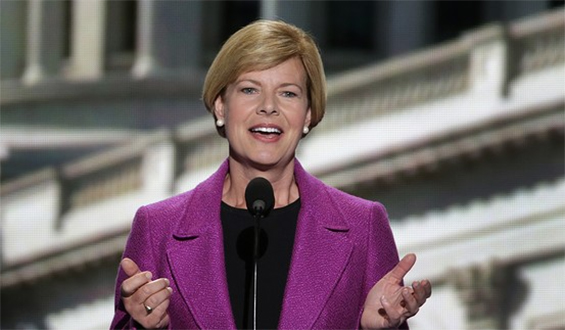
United States Senator Tammy Baldwin of Wisconsin has introduced the In The Red Act, a reform meant to address college affordability in an effort to create debt-free college.
The In The Red Act will offer student loan borrowers the ability to refinance any outstanding debt with lower interest rates. In addition, Pell Grants would increase in order to keep up with rising costs, and new investments would be made in community colleges. The legislation will also offer support in holding schools accountable to ensuring that students graduate with degrees and credentials that hold meaning.
The act is fully paid for and makes college more affordable through the closing of special interest tax loopholes.
“Higher education should be a path to prosperity, not a path into suffocating debt. But unfortunately, college costs and student loan debt are holding back an entire generation and creating a drag on economic growth for our country,” said Senator Tammy Baldwin. “The idea that the next generation will be able to go further and do better than the last one is the heart of the American dream. That is why I will fight for the commonsense solutions offered in the In The Red Act.”
Several college affordability measures are included in the Act. Student loan borrowers will have the opportunity to refinance their debt at lower interest rates, which in turn will save students and graduates billions. The US Department of Education estimates that 24.2 million borrowers would, on average, save $1,896 if they were to refinance under the new act.
Pell Grants would be adjusted for inflation in an effort to increase their value and keep them on pace with rising costs. Doing so will give close to 9.2 million students an increase of about $1,300 in their awards.
In addition, a federal-state partnership would be created that would allow students to attend community college for two years without the need to pay tuition for that time. Doing so will allow students to earn an associate’s degree, the first half of a bachelor’s degree, or the skills they need to enter the workforce debt-free. Under the new act, full-time community college students will save an average of $3,800 in tuition each year. If all states were to participate, close to 9 million students could be affected.
In order for states to participate in this partnership, a number of steps must be taken to ensure their commitment to higher education funding. They must also offer high-quality academic and occupational training programs and put institutional reforms and practices in place that will improve student outcomes.
The new act will also help institutions of higher education be held accountable by offering them incentives to ensure that all students graduate with high-quality degrees and credentials.
Finally, special interest tax loopholes will be closed to help fully pay for college affordability reforms. In particular, Senators Jack Reed and Richard Blumenthal’s Stop Subsidizing Multimillion Dollar Corporate Bonuses Act would be implemented. This would close a major loophole by preventing unlimited tax write-offs for performance-based executive pay. The carried interest tax loophole for hedge fund managers would also be closed, the “Buffett Rule” would be enacted to ensure that millionaires are paying adequate taxes, the stock options loophole would be shut down, and American companies would not be allowed to evade US taxes.




